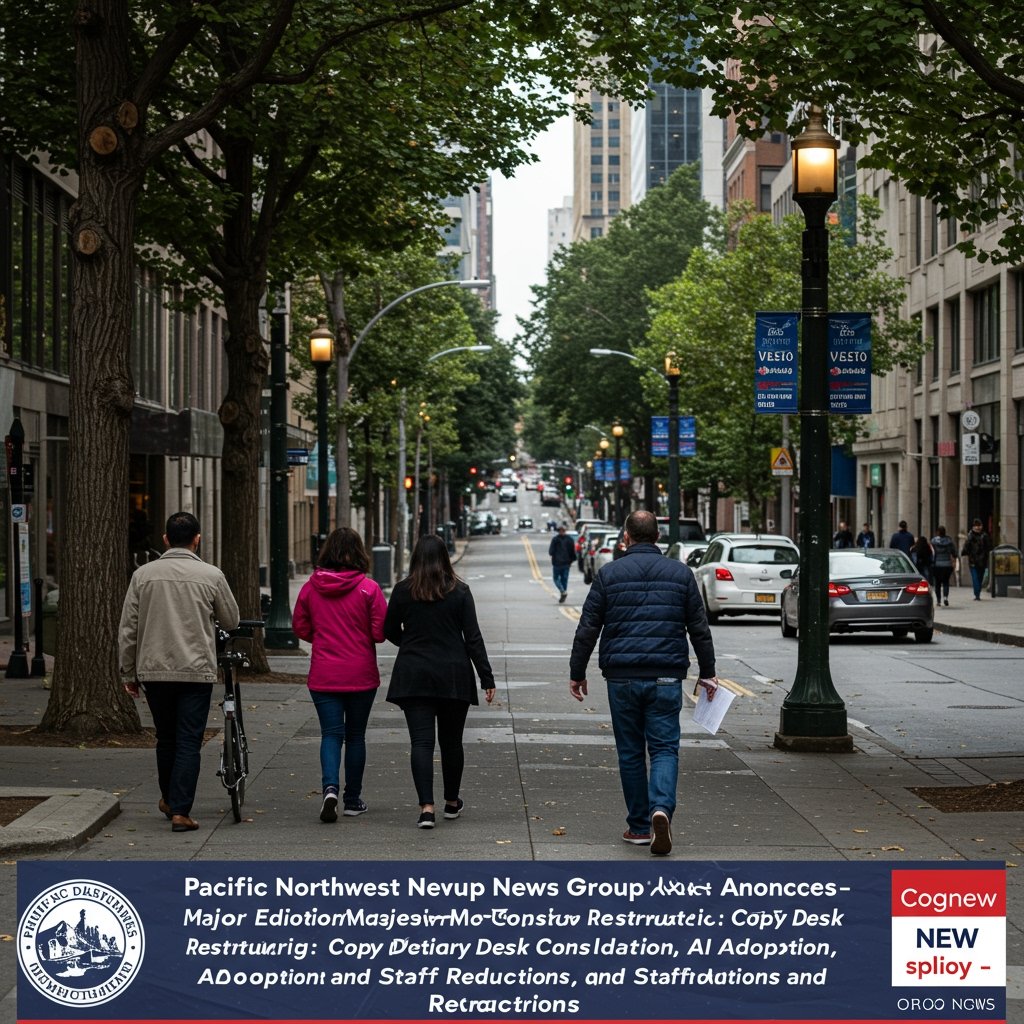Pacific Northwest News Group Announces Major Editorial Restructuring: Copy Desk Consolidation, AI Adoption, and Staff Reductions
The Pacific Northwest News Group (PNNG) today announced a significant and comprehensive strategic restructuring designed to reshape editorial operations across its portfolio of flagship newspapers: the Seattle Chronicle, the Portland Beacon, and the Spokane Herald. The wide-ranging changes, detailed by PNNG leadership, are being implemented to address the persistent challenges posed by the rapidly evolving digital media landscape and to mitigate the ongoing impact of declining print advertisement revenues.
Details of the Restructuring Initiative
Central to PNNG’s strategic overhaul is the consolidation of crucial editorial functions. Specifically, the organization plans to unify all copy editing operations into a single, centralized regional hub. This hub will be strategically located in Portland, Oregon, leveraging the existing infrastructure and potentially fostering greater collaboration and efficiency across the publications.
In parallel with the consolidation of copy desks, PNNG is also embracing technological advancements to enhance its journalistic processes. The group announced the impending implementation of a new AI-assisted fact-checking technology. This sophisticated system is slated to be rolled out across all PNNG publications, including the Chronicle, Beacon, and Herald, beginning in the second quarter of 2025. The adoption of AI is intended to bolster accuracy and verification processes in an increasingly fast-paced news cycle.
Rationale Behind the Changes
The rationale provided by PNNG leadership for these dramatic steps centers on the urgent need for adaptation. The news industry globally has grappled with a seismic shift in how audiences consume news and how publishers generate revenue. Digital platforms have overtaken traditional print, leading to a substantial decline in the advertising income that historically subsidized newsgathering operations. PNNG’s CEO, Jane Doe, explicitly cited the “urgent needs to adapt to the evolving digital media landscape and counter declining print advertisement revenues” as the primary drivers behind this strategic pivot.
The consolidation of copy editing is expected to streamline workflows, reduce redundancies, and potentially allow for a more consistent application of editorial standards across the three distinct newsrooms. The investment in AI-assisted fact-checking reflects an industry trend towards leveraging technology to improve efficiency and accuracy, particularly in an era where misinformation can spread rapidly.
Impact on Staff and Operations
While positioned as a necessary strategic evolution, the restructuring will have a significant human cost. PNNG confirmed that the operational changes will result in the layoff of approximately 85 editorial staff members across the Seattle Chronicle, Portland Beacon, and Spokane Herald. This reduction represents about 15% of the company’s current total editorial workforce.
Sources within the organization indicate that the bulk of the layoffs are likely to impact roles directly affected by the copy desk consolidation, though specific departmental breakdowns were not immediately available. The company stated it would provide support to affected employees, likely including severance packages and outplacement services, though the details of such support were not included in the initial announcement summary.
The changes, including both the consolidation and the staff reductions, are scheduled to be effective by March 15, 2025. This timeline suggests a relatively swift implementation of the new operational model.
Future Outlook and CEO’s Perspective
CEO Jane Doe, in the announcement summary, framed the restructuring as a forward-looking strategy essential for the long-term sustainability of PNNG’s publications. While acknowledging the difficulty of staffing decisions, the emphasis was placed on building a more agile, technologically advanced, and financially viable news organization capable of serving Pacific Northwest communities in the digital age.
The successful integration of the Portland-based copy editing hub and the effective deployment of the AI fact-checking system in Q2 2025 will be critical milestones for PNNG. The impact of these changes on the quality and local focus of reporting at the Seattle Chronicle, Portland Beacon, and Spokane Herald will be closely watched by readers, staff, and industry observers.
PNNG’s announcement underscores the profound pressures facing regional news organizations and the difficult decisions leaders are making to navigate a challenging economic and technological environment. The move to centralize operations and adopt AI reflects a broader industry trend, but its success will ultimately be measured by the organization’s ability to maintain robust, credible local journalism with a reduced and restructured workforce.



















